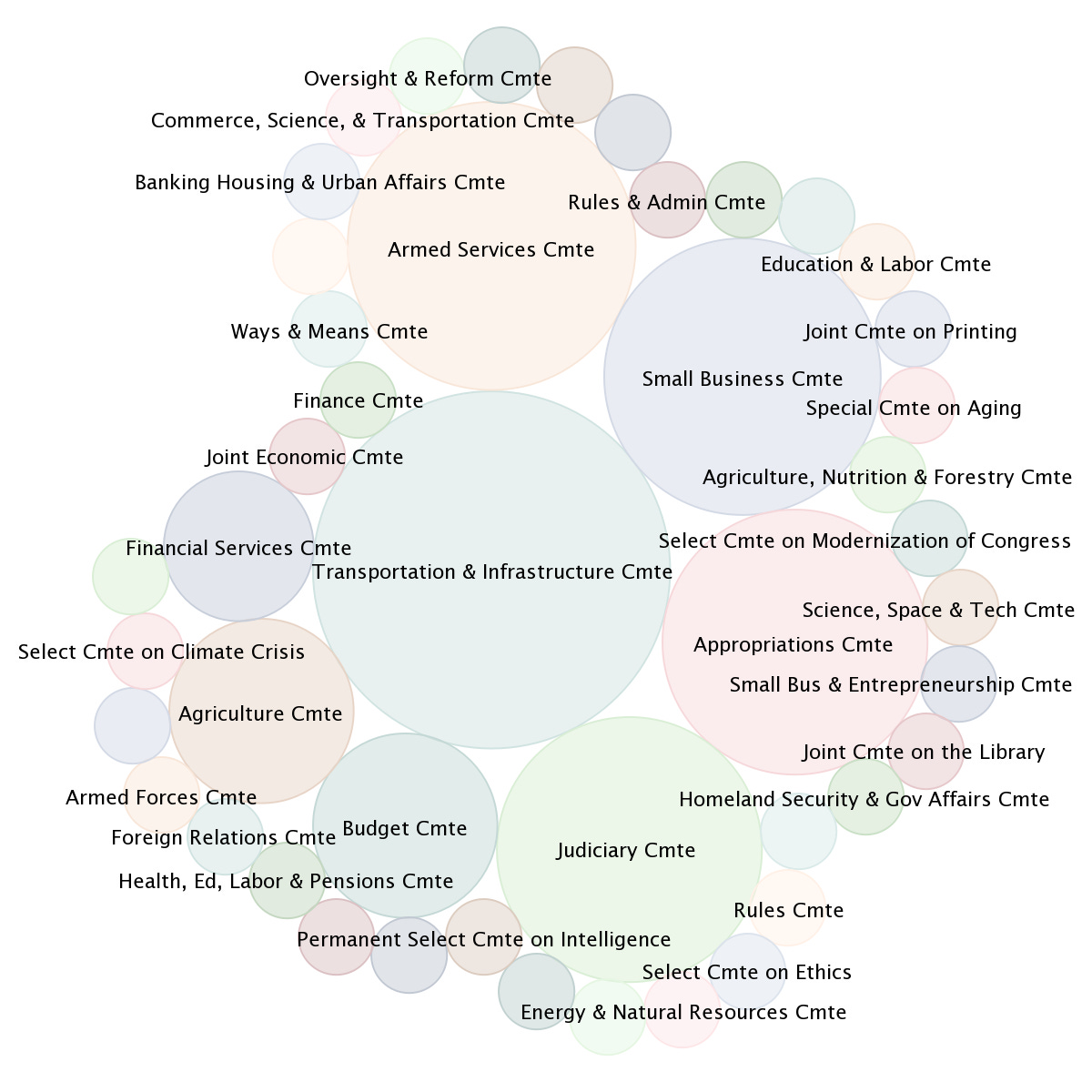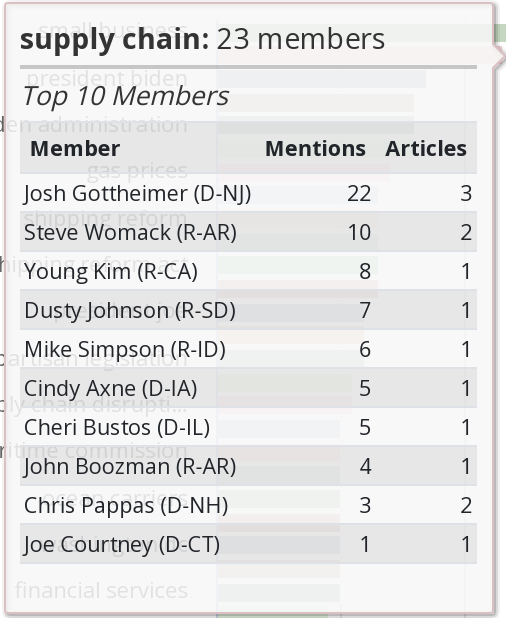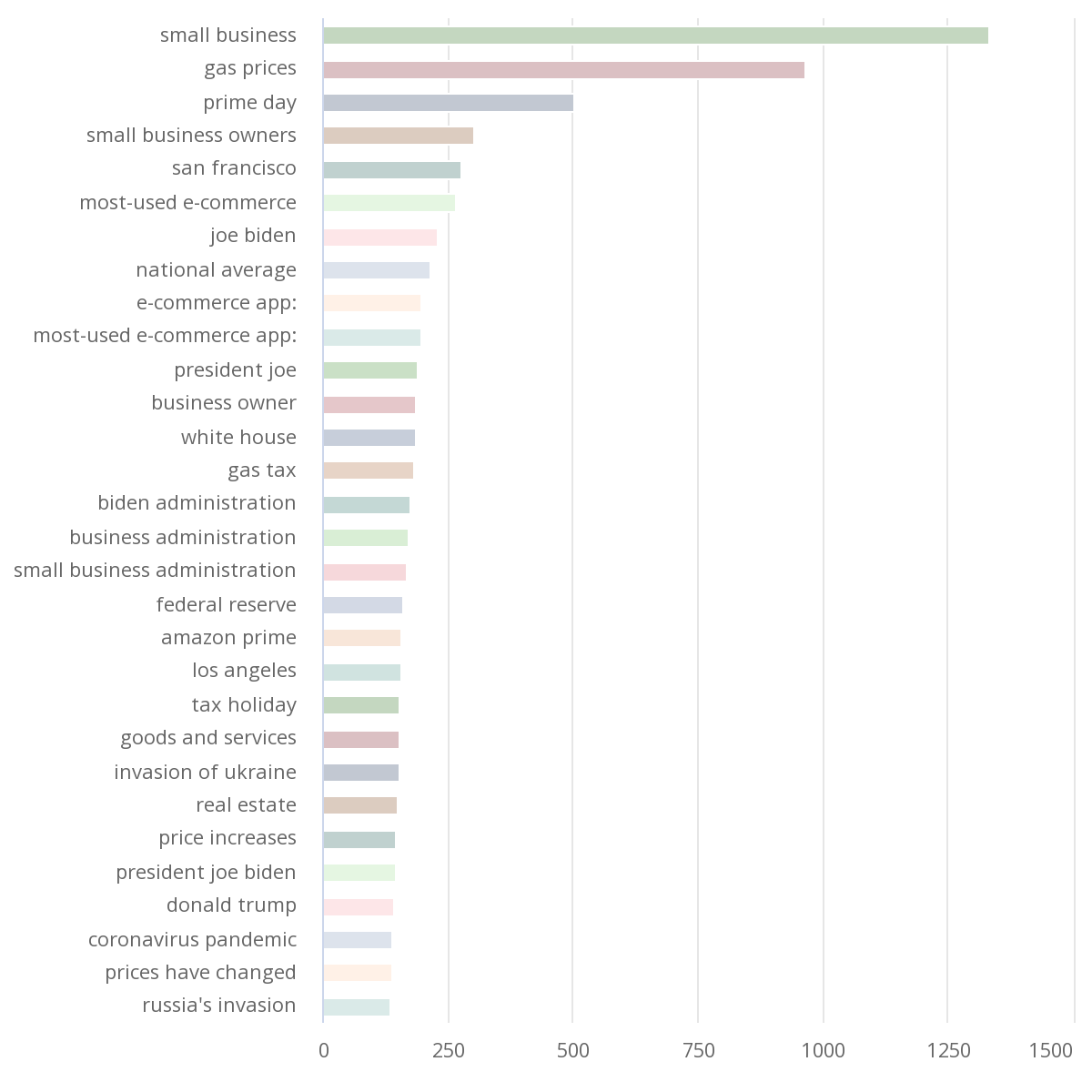
If you've ever listened to a campaign speech, you've probably heard it said: "Small Businesses are the backbone of our economy." This statement is more than just an overused political rallying cry, however. The U.S. Small Business Administration states that small businesses account for 44 percent of total U.S. economic activity and employ almost half of the country. Apart from just the numbers, narrative intelligence from U.S. Congress and U.S. Media tracks the dialogue from the Capitol and the newsroom.

An uneven playing field:
Out of the 68 congressional members amplifying the Small Business narrative, 12 used the term "playing field" when talking about small businesses. This phrase undoubtedly refers to the uneven playing field on which small-scale companies play with big corporations. While the American economy depends on small businesses, this doesn’t necessarily mean that they are able to seriously compete with major companies. The phrase “playing field” reflects language used in Amy Klobuchar (D-MN) and Chuck Grassley (R-IA)'s American Innovation and Choice Online Act. The act intends to increase competitive standing for small businesses and specifically mentions “leveling the playing field” with big businesses. Keyword analysis presents just the kind of issues that Congressional members believe are making the field uneven.

While financial strain from the supply chain crisis isn't unique to small businesses, in many ways, the severity of it is. 23 different senators and representatives have echoed this concern by mentioning "supply chain" along with "small business" on social media. This is likely due to the disproportionate impact that supply chain issues have had on small business owners. A survey from Skynova of 775 small business owners shows that Small Businesses are likely impacted the most by supply chain issues. Results showed that the products or services of 70% of the business owners were directly affected by the crisis. Looking at narrative trends makes it clear that Congress has connected the dots on how supply chain issues are hurting small businesses.

Gas prices are also a part of the small business conversation, coming in with the highest volume of mentions in U.S. media other than “small business”. This is yet another issue that affects everyone, but hurts small business owners even more. From a landscaper having to fork over $5 a gallon for gas to mow the lawn to a plumber driving around a gas-guzzling van, the gas prices are stinging more than ever.
The narrative highlights issues that have hurt big businesses badly - but small businesses worse. In response, Congress has started moving towards a few options that might just take the pressure off.
Legislative solutions:
As Congress scrambles for solutions to the economic crisis, trend data shows the kind of message that it is trying to send. In Congress, notable mentions among congressmen include "Ocean shipping" (68 mentions) and "shipping reform" (58 mentions). This refers to the Ocean Shipping Reform Act, a law that President Biden signed on June 16th to prevent international ocean carriers from "unreasonably declining American cargo." Similar to the American Innovation and Choice Online Act, this law uses the language of "leveling the playing field" to refer to its intention to help American importers and exporters.

Another angle to help out small businesses in U.S. Congress is student debt forgiveness. On June 22nd, Student debt became the most used phrase in coordination with small businesses. This comes after the Biden administration agreed to cancel $6 billion in student loan debt for borrowers who claimed their colleges defrauded them.
While student debt may seem a peripheral issue to small business struggles, a study by the Federal Reserve Bank of Philadelphia estimates the impact of student loans on small business creation. This study claims that an 8 percent increase in total student debt levels equates to a 14 percent decrease in small businesses per county. Potential small business owners have a very difficult time getting loans if they have outstanding student loans, closing the door for opportunity. For this reason, Congress has turned to debt forgiveness, a policy that has been significantly mentioned in relation to small businesses.
Finally, U.S. media points to a tax holiday as a potential solution with 154 mentions. The Biden Administration called on Congress Wednesday to pass a gas tax holiday that would run through September. Despite the 18.4 cent-per-gallon discounts that would result from this move, some experts are saying that this may only exacerbate supply-demand imbalances.
Outlook:
The same issues that are hurting everyone's wallets are probably hurting small businesses a lot more. Trends in U.S. Congress present a narrative that, in more than one way, the playing field is not even. Using narrative intelligence, it becomes clear how Congress is shaping the conversation about the state of small businesses in America, and what legislative solutions it is pointing towards.